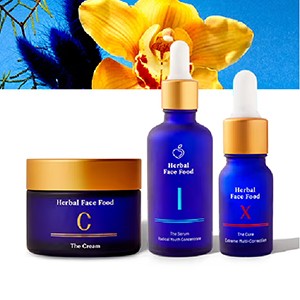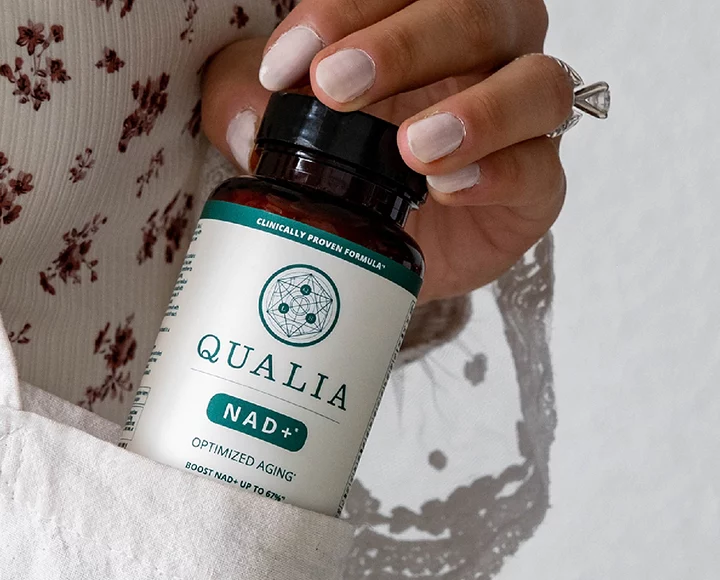Balance is key for wellness, even on the microscopic level. We’re learning how to improve neurotransmitter function with some simple yet fascinating advice from Dr. Elizabeth Boham of The Ultra Wellness Center. Keep reading for simple tweaks you can make that could dramatically improve your ability to focus and your sleep…
Have you ever had a glass of milk before bed to sleep better? Or experienced the sleepy feeling after eating a lot of turkey? The reason for this is serotonin, a neurotransmitter that can help you sleep well. Neurotransmitters are chemical messengers that are sent between cells to instruct nerves, glands and muscles in the body. Some neurotransmitters, such as serotonin, help us feel happy, calm, sleepy and even decrease pain levels in the body. Other neurotransmitters, such dopamine and norepinephrine, are stimulating and are important to focus and concentrate. The balance of neurotransmitters in your body is necessary for our daily function and happiness. (Learn more about common neurotransmitters here.)
What Happens When My Neurotransmitters Are Low?When your neurotransmitters are low or out of balance, you can have fatigue, depression, disrupted sleep, and problems with focus, attention and learning. Some common diagnoses that people have with neurotransmitter imbalances include ADHD (attention deficit hyperactivity disorder), depression, anxiety, insomnia, sleep disorders and others. If you are especially deficient in the nutrients that help your neurotransmitter function, the little that you do consume will be used for other functions within your body.
What Can I Do To Improve Neurotransmitter Function?
Eat Enough Protein. Neurotransmitters are built from amino acids in the body, which come from the protein in our diet. Foods rich in protein include animal proteins such as fish, chicken, beef, eggs, and dairy, as well as vegetable proteins such as beans, legumes, nuts, seeds and tofu. A general rule of thumb is to consume at least one gram of protein per kilogram of ideal body weight. If you weigh 150 lbs, then you need about 70 g of protein a day.
Ideally, you want to divide up the protein evenly into your three meals and consume a mixture of animal and plant proteins. If you don’t want to start calculating your protein grams, just try for a good protein source at each meal. For example, eating an omelette for breakfast, a chicken stir fry for lunch and beans and rice for dinner can give you sufficient protein. By consuming this much protein, it ensures that some of the amino acids are used for neurotransmitters production as well as the body’s other needs.
Amino acids such as tryptophan, tyrosine, and arginine are used to produce many essential neurotransmitters. The idea of having a glass of milk before bedtime to help you sleep or the sleepy feeling after having turkey for dinner is because of amino acids. Milk and turkey are high in tryptophan, the amino acid that is used to make serotonin in our body. Even a single meal that is deficient in tryptophan has been shown to cause increased agitation or depression in people. In addition to milk and turkey, chicken, fish, nuts, beans and oats are also rich in tryptophan.
Reduce Stress. Remember that amino acid requirements can increase in times of stress or even with slight malnutrition. So, when you notice problems with mood or attention, make sure you are doing things to help lower stress in the body. Taking a few minutes a day to do yoga, meditation or any kind of healthy self-care can significantly relieve stress. Additionally, make sure to eat a whole food diet and do not skip meals.
Feed your healthy microbiome. We are learning more and more each day about how the bacteria in our digestive tract influences the production of neurotransmitters in the body. (Read more here.) Take care of your healthy bugs in your body. Avoid added sugar and unnecessary antibiotics whenever possible, choose meats that are raised without antibiotics and eat a diet rich in fiber to feed these healthy bugs.
Take Supplements. After making sure that you are doing the basics when it comes to your diet, you may want to look into taking supplements. If struggling with mood or attention, these supplemental amino acids can be very helpful. Meet with a trained functional medicine doctor for guidance.
Supplements of tryptophan or another form (5HTP) are often used to improve mood and promote good sleep. Typical doses for sleep are 50-200mg of 5HTP or 500-2000mg of tryptophan taken in the evening. If you are taking any medication for sleep or mood, such as an SSRI (selective serotonin reuptake inhibitor), it is very important that you work with your doctor before adding these supplements. If you take these supplements with medication, you can get too much serotonin, and this can have dangerous side effects. But, because these supplements can help raise the serotonin level in the body, 5HTP and tryptophan can support the weaning down and discontinuation of these medications when appropriate.
The amino acid tyrosine is used in the body to produce dopamine and norepinephrine, the stimulating neurotransmitters necessary for focus. Supplemental tyrosine is often given during the day, between meals, to help someone who is struggling with focus and attention issues. Typical dosage is 500-1000mg twice daily between meals to allow for better absorption. Because tyrosine can be stimulating, avoid taking it too close to bedtime. There are combination products that have tyrosine along with more calming amino acids (such as 5HTP and GABA) to help balance the stimulating effect of the tyrosine.
Change your diet. As always, the first step toward any change in your body is diet. Cut out junk food and foods with additives and preservatives. Make sure you have enough protein at each meal and enough brain-healthy omega 3 fats found in fatty fish and ground flax seeds. By eating a diverse, whole foods diet full of healthy protein, you will notice significant changes in your mood, sleep and focus.
The Chalkboard Mag and its materials are not intended to treat, diagnose, cure or prevent any disease. All material on The Chalkboard Mag is provided for educational purposes only. Always seek the advice of your physician or another qualified healthcare provider for any questions you have regarding a medical condition, and before undertaking any diet, exercise or other health-related programs.












